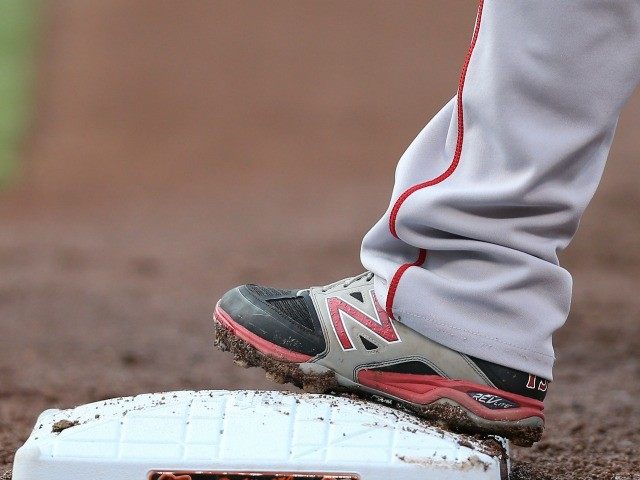Shoe-maker New Balance is switching sides to oppose President Barack Obama’s Trans-Pacific Partnership trade deal.
The politically hazardous switch comes after the American company’s executives gave up waiting for a Pentagon shoe-production contract that had been offered by Obama’s deputies in exchange for company support of TPP.
The executives at New Balance initially wanted to oppose the treaty because the TTP-enforced shift would threaten New Balance’s shoe-making in the United States.
“We swallowed the poison pill that is TPP so we could have a chance to bid on these contracts,” Matt LeBretton, the public affairs chief, tells The Boston Globe. “We were assured this would be a top-down approach at the Department of Defense if we agreed to either support or remain neutral on TPP. [But] the chances of the Department of Defense buying shoes that are made in the USA are slim to none while Obama is president.”
The TPP deal would allow many U.S. companies to import manufactured goods from the Pacific Rim without paying any tariffs. U.S. companies would face price pressure to shift their production to very low wage factories in the Pacific rim, such as in Vietnam, which already make shoes for other companies.
The company employs almost 1,500 people at five factories in Massachusetts and Maine.
Shoe companies have proven symbolically important to the politics of the TPP deal. For example, Obama opened his campaign for passage of the deal by giving a speech at the Nike’s headquarters in Beaverton, Oregon. Since then, he and his deputies have insisted that U.S. shoe companies and their employees would gain from the free-trade deal.
That claim was repeated when administration officials sought to downplay the New Balance’s switch to opposition. “It is unfortunate that, despite a strong outcome in TPP that advances the interest of US footwear workers, New Balance now appears to be changing its position on TPP in response to the Pentagon’s separate procurement process,” a spokesman for the Office of the US Trade Representative told the Boston Globe.
Obama’s administration is still pushing for the trade deal, which would allow foreign companies to import foreign workers for jobs inside the United States, and would also establish three-judge international panels to rewrite U.S. laws and rules, such as limit on guest-workers in the United States. Unsurprisingly, the deal is so unpopular that it has helped opponents Donald Trump and Sen. Bernie Sanders win many primaries in the 2016 race.
In general, the deal is backed by establishment politicians, including House Speaker Paul Ryan. But the public hostility has prompted leaders to say they won’t even try to pass the trade deal until after the November 2016 election.
New Balance’s executives are sticking with their opposition to Obama’s deal, for the moment. “We make a lot fewer shoes in the US than we do overseas, but the point is we’re trying to make more [shoes] here, not less,” said LeBretton.
“When agreements like this go into place, what that says to us is that our president and our trade negotiators, they don’t want us to make more products here.”

COMMENTS
Please let us know if you're having issues with commenting.